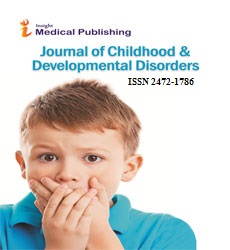Abstract
Childrens Developmental Intervention Services: A Scoping Review of Canadian Experiences and Trends
Background: Children’s treatment centres are a key service point for children with impairments and developmental disabilities. However, the current state of children’s developmental intervention services (CDIS) in Canada has been only minimally described. Currently, two knowledge gaps in CDIS research need to be addressed, requiring a scoping review of the existing literature. First, the current trends and areas understudied in CDIS in Canada are unknown. Second, there is a need to explore important factors and outcomes of children’s service utilization in a comprehensive manner, a topic which is of interest to readers globally.
Objective: The objective of this scoping review is to identify key factors shown to influence service utilization and areas understudied in CDIS based on Canadian literature.
Methods: Twenty-three peer-reviewed articles were selected for review. Andersen's Model of Healthcare Utilization was used as a lens to extract the data, and the findings were examined through the domains of Andersen’s Model.
Results: Studies focused heavily on exploring the healthcare system and familycentred services. The analysis revealed that higher rates of service utilization are associated with younger age, males, and children with lower cognitive or motor functioning. Occupational therapists, physiotherapists and speech-language pathologists are the most utilized disciplines. Higher perceptions of service satisfaction are related to increased presence of FCS at the centres. At the same time, personal health practices, participation and functional outcomes in relation to service utilization require more research.
Conclusion: We recommend future researchers examine interactions among key factors identified in this scoping review, as well as explore understudied areas to obtain a comprehensive understanding of CDIS factors.
Author(s):
Uzma Williams*, Mary Law, Jan Willem Gorter and Steven Hanna
Abstract | Full-Text | PDF
Share this

Google scholar citation report
Citations : 504
Journal of Childhood & Developmental Disorders received 504 citations as per google scholar report
Abstracted/Indexed in
- Google Scholar
- China National Knowledge Infrastructure (CNKI)
- Directory of Research Journal Indexing (DRJI)
- WorldCat
- Publons
- Geneva Foundation for Medical Education and Research
- Secret Search Engine Labs
- Euro Pub
Open Access Journals
- Aquaculture & Veterinary Science
- Chemistry & Chemical Sciences
- Clinical Sciences
- Engineering
- General Science
- Genetics & Molecular Biology
- Health Care & Nursing
- Immunology & Microbiology
- Materials Science
- Mathematics & Physics
- Medical Sciences
- Neurology & Psychiatry
- Oncology & Cancer Science
- Pharmaceutical Sciences

